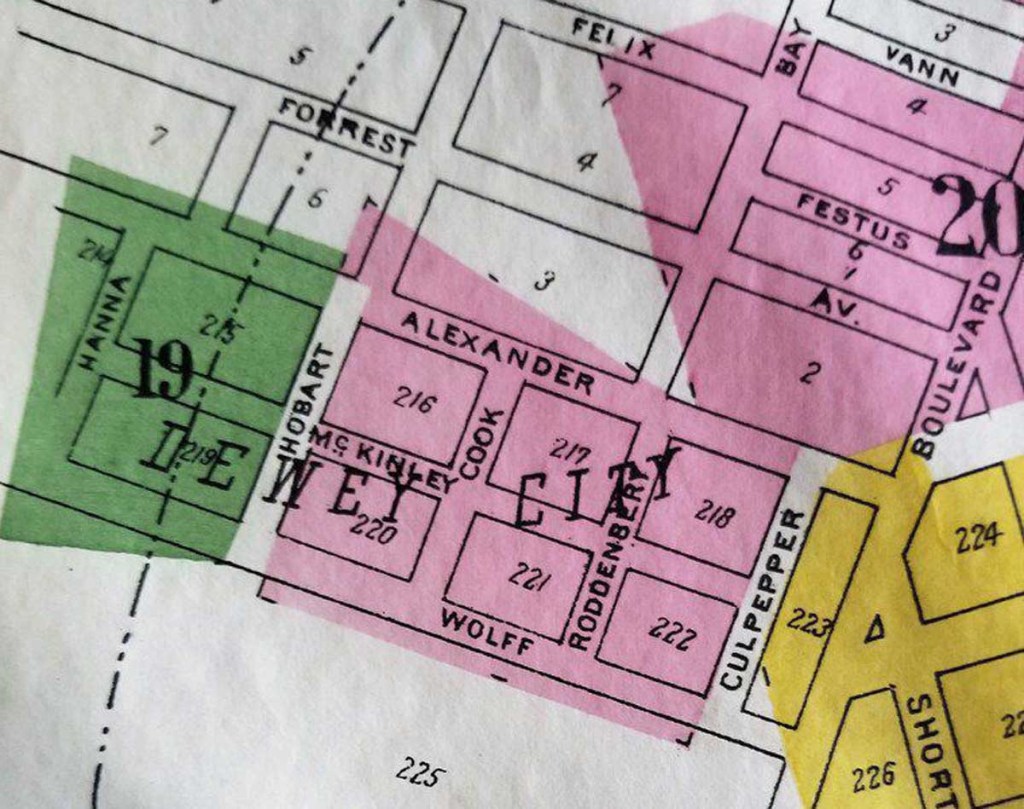Dewey City residents file suit against 2014 rezoning
Published 2:02 pm Thursday, September 13, 2018

- Map provided by Thomasville History CenterMap shows area encompassed by Dewey City.
THOMASVILLE — The Dewey City Community Committee has filed a civil action against the City of Thomasville, Thomasville City Council and Mayor Greg Hobbs individually and in his capacity as a city council member.
The lawsuit, which was filed in Thomas County Superior Court last week, states that on April 18, 2014, Hobbs, then mayor pro tem, filed a petition with the Thomasville Planning and Zoning Commission to rezone 415 Alexander St. from R-1 (residential) to R-2 (residential conditional use.) The petition said Hobbs wanted to build a duplex.
Trending
Planning and zoning denied the rezoning request, and Hobbs appealed the decision to city council, where he served as mayor pro tem.
The original civil action filed July 1, 2014, asks that defendants be enjoined from rezoning the property “to avoid a multiplicity of actions and harm to property on Alexander and in Dewey City.” The action was voluntarily dismissed on March 7, 2018, and refiled on Sept. 4.
“The rezoning of said property would denigrate historical relevance and neighborhood integrity,” the suit stated.
The property’s rezoning was the result of defendants working in concert to undermine the planning and zoning commission, according to the lawsuit.
“Defendant Hobbs is the mayor pro tem for the City of Thomasville and relied on his position and influence to circumvent his initial denial for rezoning. … Thomasville City Council’s reversal was fraudulent and the rezoning of this historic area should be denied,” the suit states.
According to the document, other properties owned by Hobbs on Culpepper and McKinley streets “are well-known for being high crime, drug areas.”
Trending
Properties owned by plaintiffs have been impacted, causing a reduction of value of homes, the suit alleges.
Hobbs, the suit states, obtained rezoning as a result of “fraudulently misleading conduct and beguilement.”
The suit, filed by Valdosta attorney Roy W. Copeland, requests damages deemed just and proper by the court, the cost of bringing the action and attorney fees.
Hobbs did not respond to a request for comment about the action.
Tim Sanders, city attorney, declined to comment on pending litigation.
Dewey City is bound by Martin Luther King Drive to the east, Felix Street to the north, Culpepper Street and Burns Street to the west and Wolf Street to the South. It is listed on the National Register of Historic Places, which is a statement of its historical significance, but offers no protections or restrictions in terms of land or structure construction, change or demolition, said Ephraim J. Rotter, Thomasville History Center curator.
Dewey City is not a City of Thomasville Historic Preservation District, which does have protections and restrictions.
“As long as it is OK within the Thomasville Planning and Zoning codes, it can be done there,” Rotter said. “The neighborhood is considered largely intact historically.”
Rotter said the area, in part, is considered significant because it is — and has always remained — an African-American residential neighborhood of single-family homes.
Despite a petition signed by a majority of property owners in the Alexander Street area, city council approved Hobbs’ rezoning request on May 20, 2014.
According to a May 22, 2014, Times-Enterprise story about the meeting, Hobbs left the council table and sat in the audience as property owner after property owner in opposition to the rezoning addressed the council.
Max Beverly, then mayor, told the meeting audience Hobbs made a valid request in accordance with criteria the council must evaluate. Noting lawsuits, Beverly told the delegation the council “is not in a position” to reject Hobbs’ rezoning request.
One of the Dewey City residents told the council Neighborhood Watch was organized in the area because of Hobbs’ property.
The four council members remaining at the council table voted in favor of Hobbs’ rezoning request.
“On one hand, there were no legal grounds to deny his rezoning application if the recorded stipulations were included but, on the other hand, the application had been denied by planning and zoning,” Beverly said Thursday. “He asked me and the other council members to hear the rezoning application well before any other application without a planning and zoning recommendation would have been heard and we did. His application did meet rezoning criteria as long as the special stipulation was included, so ultimately I felt like it would have to be approved.”
Beverly said that after he and other members of the council “climbed out on a limb for Hobbs, approved the rezoning with the stipulation that he make architectural changes to his plan to make it fit better with the neighborhood. He sawed the limb off on us by claiming that he never agreed to the stipulation, which in my opinion really didn’t matter, because that’s what was passed by the council.”
Council passed the request one way, Beverly said, adding that if Hobbs did not like the way the request was approved, he should have made another request.
“That’s the way it works for every other person,” Beverly said. “Greg voted three times to approve meeting minutes, which specifically read that the architectural stipulation was part of the rezoning application approval. And all the other council members voted a total of six times that there were stipulations to the rezoning.”
Beverly said Hobbs failed to do what was required under the rezoning ordinance after putting the council in a difficult position.
“Because of that, he couldn’t get a certificate of occupancy for the property,” Beverly said.
Senior reporter Patti Dozier can be reached at (229) 226-2400, ext. 1820





